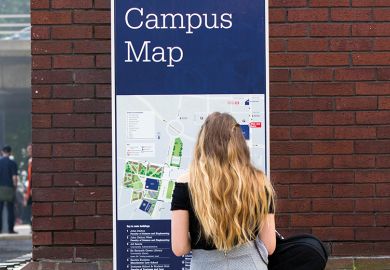Universities’ well-meaning efforts to safeguard their international students risk backfiring because of cultural misconceptions, Melbourne researchers have warned.
A survey of Chinese students has found that support programmes to guide them through difficult times may be adding to their sense of isolation, without addressing their real needs.
The mismatch is rooted in different conceptions of “well-being” – a word that has “no direct translation” in Chinese, according to lead researcher Lanxi Huang. While the English conceptualisation has both positive and negative aspects – suggesting someone experiencing poor well-being may need professional help – Chinese people understand it as a positive concept related to connection with family and friends.
Chinese students see well-being as an amalgam of relationships, security and prosperity as well as physical and mental health. But Western interpretations emphasise the need to reduce stress and pressure, often through professional therapy – an approach at odds with Chinese world views influenced by Buddhism and Taoism.
Buddhists regard suffering as “a crucial source for security and well-being”, the researchers explain in the International Journal of Environmental Research and Public Health. Taoism encourages practitioners to “embrace negative emotions…to achieve peace of mind”.
The respondents said experiences considered negative in the West, such as pressure, could be “a positive motivator for improving themselves”, the paper says. “One interviewee noted that anxiety or depression at a subclinical level is okay as long as it does not affect daily functioning too much.”
The report says conceptualisations of “well-being” have been “built upon studies from westernised and industrialised nations”. While the terms “mental health” and “well-being” are common in public health literature, “the question becomes the extent to which those words are meaningful to different populations”.
“If words are meaningless, then educational messages, support, services and approaches…may only communicate with local populations, fuelling inequities in care and further contributing to risk for already vulnerable populations.”
The findings may help explain why some international students “suffer in silence” until their experiences become unbearable. The Victorian Coroners Prevention Unit, which examined 27 international student suicides between 2009 and 2015, found that the victims had betrayed few signs of distress and eschewed professional help.
Ms Huang, a doctoral candidate at the University of Melbourne’s Centre for Positive Psychology, said just 2 per cent of respondents in her study had accepted offers of counselling.
Interviewees told her that language difficulties and “cultural misunderstandings” hampered therapy sessions. “Students sometimes feel that they are not being understood by the counsellors,” she told Melbourne’s Remaking HE conference.
Those desperate enough to overlook these shortcomings faced untenable waiting times. “Normally, it will take about two or three weeks to make an appointment,” Ms Huang said. “That is not an effective way to solve urgent problems.”
The study found that most respondents maintained their well-being through exercise. Other remedies included exploring Melbourne’s suburbs, learning new skills and even studying harder. Ms Huang suggested cooking classes. She said it was important for the students to connect with the local community.
Chinese students typically spent their first three months in Australia “overwhelmed” by practical matters such as opening bank accounts, arranging phone services and navigating supermarket shelves. “But then they expand their social lives and try to engage with locals.
“In China there’s so many people around you. Here, you need to make effort to connect.”
Register to continue
Why register?
- Registration is free and only takes a moment
- Once registered, you can read 3 articles a month
- Sign up for our newsletter
Subscribe
Or subscribe for unlimited access to:
- Unlimited access to news, views, insights & reviews
- Digital editions
- Digital access to THE’s university and college rankings analysis
Already registered or a current subscriber?




